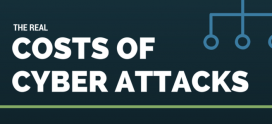Holiday Shopping: Best Practices for Shopping Safely Online
Have you ever considered that you could be a target for a hacker? The holidays are around the corner meaning that this is the season for scammers to get to work. Identity theft and scam prevention services reports that approximately 15 million Americans have their identities used fraudulently each year with financial losses totaling upwards of $50 billion.
Here are four tips to help keep you safe while you shop.
Never click on links in an email
Clicking on the link instead of manually typing in the retailer’s website can redirect you to a scam site. Fake emails are designed to look like retailer’s in hopes you’ll give them your personal information. In fact, email phishing scams remain the most widespread method of stealing information. Although I am only referring to one form, it is important for you to be aware of the many other forms phishing presents itself as.
Best practices:
- Check for odd spelling and bad English grammar
- Beware of links
- Be leery on too good to be true deals
- Avoid redirected sites
- Keep your security software up to date
Use Wi-Fi connections that you know
What is so wrong about using public Wi-Fi? Although public Wi-Fi can be convenient when you are at your favorite coffee shop browsing your news feed, public Wi-Fi is not secure even if it is password protected making it a major security risk. You are still an easy target for a hacker to eavesdrop on your online conversations, transactions, and personal information. Essentially, all that is really needed is for you and the hacker to be on the same Wi-Fi.
Best practices:
- Always verify the SSID (service set identifier otherwise known as Wi-Fi name) with the business hosting
- Use a VPN (virtual private network) if in a dire situation
Shop on secure sites only
Your browser is the door to the internet and the front line of defense against security threats. Securing the front line will keep hackers from walking right through your front door. How do you let the deals come in while keeping the hackers out? Keep a close eye on your address bar making sure it always shows an icon of a locked padlock. This ensures that the site is using SSL (secure socket layer) encryption HTTPS:// (instead of just HTTP://) adding an extra layer of protection by encrypting your data.
Best practices:
- Shop from familiar websites that you trust
- Research unfamiliar sellers to make sure they are legitimate
- Always update your browser
Avoid Fake phone apps
As you scroll through your phone’s app store you find an app that claims to help you find the best deals, it shows a good score, and has the most popular brands. Up to 75-80% of the top free apps on Android or iPhones have malicious software known as malware, giving hackers easy access to not only steal your personal information but a gateway to your everyday life. They can now snoop on your conversations, steal passwords, track your location, credit card information, and even use your phone’s camera to spy on you. Worse of all, these apps continue to work while they do their magic profiting from your device without you even knowing.
Best practices:
- Do your research before downloading apps
- Delete apps that do not make sense
- Read the reviews
- Review app permissions
- Do not download apps from third party sources


